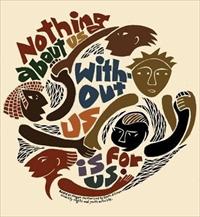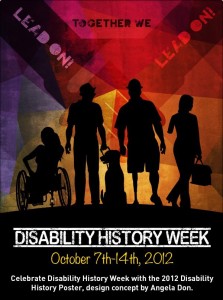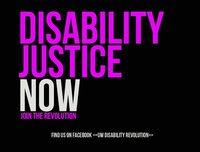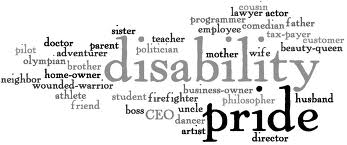On the Murder of a Disabled Daughter
On August 19, an 88-year-old Oakland man named William Roberts killed his 57-year-old quadriplegic daughter Marion Roberts and then turned the gun on himself. Information about the case has been sparse, but it’s clear that Mr. Roberts was terminally ill with liver cancer and lung disease, and that he had cared for his daughter for over 25 years — first with his wife and then with his son. His daughter had become quadriplegic and had sustained traumatic brain injury from a fall in 1987. She needed assistance with all of the basic tasks of life, and it appears that she received that assistance with a great deal of love.
So what would drive a man to commit such an act at the end of his life?
I think about these kinds of issues a great deal. When a healthy parent, in the prime of life, kills a disabled child, my immediate response is to condemn the perpetrator. I do not want to hear about a lack of services, or about the perpetrator’s fear and hardships. No. You bring a child into the world and you are responsible for protecting the life of that child. That is my immediate response.
So I was surprised, as I read the story of William Roberts and Marion Roberts, that my response was not nearly so visceral. The gating issue, for me, was Mr. Robert’s terminal illness. His impending death seems to have been the motivator here, not his daughter’s disability. I see no evidence that he killed her because he wanted a “normal” life, or because he resented having a disabled daughter, or because he thought life had done him wrong. After all, he had cared for her for 25 years — into his 60s, 70s, and 80s.
I don’t know the man or the family, but it is possible that William Roberts killed his daughter because he was dying and he was terrified of leaving her in the hands of strangers. This is a fear that afflicts a great many parents of severely disabled children. And he had good reason to be terrified. His daughter was likely headed straight for substandard care in the disability gulag. Marion’s brother Thomas helped with her care, but it appears that the bulk of the caregiving fell on the father and that he was frightened about his increasing inability to care for her. Who knows whether anyone had stepped up to reassure him that they would be there after he died? Or whether he could trust those assurances even if they had come?
I’m beginning to realize the necessity of separating the responses to these stories — which inevitably follow the tired and bigoted logic of “disabled people are suffering and the parent/caregivers are putting them out of their misery” — from what might have been going on for the people involved. I don’t think that William Roberts killed his daughter because he thought she was suffering in the here and now. In fact, there is no evidence that she was suffering in the here and now, and there is no evidence that he thought she was. I think it’s possible that he killed her to prevent her from suffering abuse, neglect, loneliness, and indignity at the hands of uncaring strangers after he died.
The man was faced with an impossible choice on his daughter’s behalf: What is better? Death or hell? That someone who spent his elder years caring for his daughter would ultimately take her life (and his own) says far more about the world we live in than it says about him. I feel for this man in a way that I don’t usually feel for people who commit these murders. There was no good ethical choice here because the world didn’t leave him with one.
Is murdering your child an ethical choice? No. I can’t see how that’s arguable, ever.
Is leaving your adult child to be warehoused in hell an ethical choice? No. I can’t see how that’s arguable, ever.
The absolute lack of an ethical choice is not on William Roberts. It’s on the world.
To me, this is very different from a healthy person in the prime of life who kills a child and ends up being excused because they couldn’t get proper support services. Bullshit to that. Not getting proper support services while you’re in the prime of life is a very different thing from being tortured by what will happen after your death when your death is clearly around the corner. This man spent 25 years caring for his daughter and, by all accounts, did an outstanding job. His worry was not about a lack of support services when he was still alive. He could make up for that lack. But after he was dead — what then?
As I age, my greatest fear is to fall into the hands of strangers for my care. I do not fear pain, or further disability, or even death as much as I fear entering the medical system on my own. It is my worst nightmare. I think that it was likely William Roberts’ worst nightmare for his daughter.
Do I condone what William Roberts did? No. I don’t. A murder-suicide is ghastly. I don’t consider it a noble act.
Do I condone the unconscionable choice the world gave William Roberts? No. I don’t. I grieve for a world in which death or abandonment into hell are the choices people are given.
If my condemnation is going to fall, I’m going to let it fall on a world that creates these unconscionable choices.
© 2013 by Rachel Cohen-Rottenberg









3 comments already | Leave your own comment
Rob
9/2/2013 | 1:57 pm Permalink
I agree with most of your opinion and share all of your fears. I struggle to live one day at a time, with the specter of homelessness, mental and physical disability and isolation haunting me. One of my fears is waiting too long to choose my own fate, losing my liberty and ending up some form of institutionalized hell – which I’ve already had a bitter taste of. Timing is everything. But how will I know when then end is imminent? Will I even be table enough to know? Maybe I’ll just gradually sink into it. Maybe Some rich person will adopt me and take care of me when I can’t take care of myself. Yeah, that’s probably what’ll happen.
Great write up, though. It’s a topic I frequently terrify myself with – seen through clearer eyes than mine.
ABE
9/2/2013 | 9:18 pm Permalink
You’ve said it all: a society which offers a father this as his only choice isn’t the society we should be working toward.
I question whether that WAS his only choice. But I have read similar stories of Hobson’s choices.
I hope I never have to make such a choice.
Jennifer G
9/3/2013 | 9:28 am Permalink
Your write up on this subject helps to solidify my attachment to “thou shalt not judge”. Each and every scenario is unique. In the case of this man, it appears as though he acted as he thought was right given the circumstances. (Disclaimer) It DOES NOT mean that I support his actions in any way. I simply think that he decided death was better than leaving her to just anyone.
Let’s face it, a stranger wouldn’t feel the love for his daughter that he did. It takes time to know people & love them. It takes time to know how special people are. A strangers immediate interaction is the “burden” of care. My loved one with special needs is an amazing person in my opinion. Everyone who doesn’t know him thinks he’s loud, opinionated,talks a whole bunch, and is demanding of quality (which is superficially true). It is difficult to live up to his standards. It terrifies me to think of where he would end up without me. Does anyone else see the beauty inside of him? Can they look past the disability to see his passion, his dreams, his capability of love, his humor, his level of ethics that surpasses any other? I doubt it. Most people only see the crunchy outside & never the soft on the inside. And that very well could have been Mr. Roberts fate. What a terrible position to be in if he truly was in his right mind.